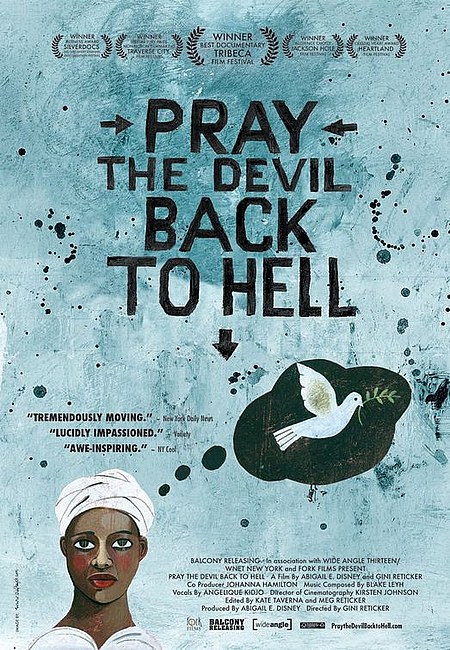
Editor’s note: This post is slightly revised from an earlier version.
If you break down box office statistics in just the right way, you could conclude that American moviegoers care more about supporting communism and its causes than they do about widows and orphans and global poverty.
We could do that if we used a similar approach to the logic employed in this recent op/ed in the Wall Street Journal, written by Movieguide’s Ted Baehr and Tom Snyder, who argue that “what succeeds [at the box office] is capitalism, patriotism, faith and values.”
Baehr and Snyder base this on their analysis of “250 major films from Hollywood studios and independents for their social, political, philosophical, moral and religious content. . . . Once again, family-friendly, uplifting, and inspiring movies drew far more viewers in 2008 than films with themes of despair, or leftist political agendas.”
Consider how statistics don’t tell the whole story.
First, the year’s No. 1 movie – The Dark Knight, grossing well over $500 million domestically and $1 billion worldwide – depicted a city in complete despair until redemption finally wins through in the end. Second, family-friendly movies will obviously sell more tickets because you can take the whole family, and not just the “grown-ups.” (In my family, that means buying four tickets instead of just two.) Third, Movieguide’s “formula” for successful films doesn’t even factor in foreign box office figures, which are often more than the domestic take.
And consider how some categories may be irrelevant to moviegoers’ choices. Movieguide’s WSJ piece praises The Dark Knight and Iron Man because they are “pro-capitalist” movies, simply because their protagonists are very wealthy men who did some good things with their money. There’s no thought that perhaps so many flocked to the film because Heath Ledger’s portrayal of The Joker was so compelling, or because it’s a battle of good vs. evil, or because we just think Batman is one uber-cool superhero. I’ve never heard anyone say they wanted to see The Dark Knight “because I absolutely LOVE pro-capitalist movies!”
The editorial also slams movies like The Visitor for their “anti-American content” (we named it one of the year’s most redeeming films because of the love and sensitivity shown to foreigners in desperate need) and Under the Same Moon (ditto; that movie was about showing compassion to immigrants).
This paragraph leaves us especially puzzled:
“The moneymaking trend was similar for movies with explicit or implicit anticommunist content. That group – including an ‘An American Carol,’ which mocks communism; ‘Indiana Jones and the Kingdom of the Crystal Skull,’ where Indy reviles communists and their impoverished ideology is exposed; ‘City of Ember,’ where a tyrant steals from the people; and ‘Fly Me to the Moon,’ about the space race between the U.S. and the Soviet Union – averaged $71.8 million at the 2008 box office in America and Canada. By comparison, movies with pro-communist content, such as ‘Che,’ ‘The Children of Huang Shi,’ ‘Gonzo,’ ‘Trumbo’ and ‘Vicky Cristina Barcelona,’ averaged a measly $7.9 million in 2008.”

It’s hard to know where to start in response. First, it’s not at all clear that these are “pro-communist” movies. For example, The Children of Huang Shi is a true story about a British journalist, George Hogg, who rescues Chinese orphans from certain death during the nation’s war with Japan in the 1940s. The Chinese remember Hogg as a hero today, and the boys he saved are eternally grateful for his selfless act of mercy and compassion. We don’t see how that’s “pro-communist.”
Second, using the same statistical logic, let’s compare those those “pro-communist” movies – which averaged a “measly” $7.9 million – to the average for movies that depicted Christ’s radical love in action, such Pray the Devil Back to Hell, Call + Response, We Are Together, As We Forgive, War Child, and Sons of Lwala. Box Office Mojo only has stats on Call + Response ($215,000) and Pray the Devil ($73,000), but I’m sure the others were well under $50,000. So, let’s say their average was a “measly” $50,000. Compared to the “pro-communist” movies’ take of nearly $8 million, that means Americans are 160 times more likely to be pro-commie than pro-love. Hey, statistics don’t lie!
Well, that depends on how they’re presented. Stats can be manipulated in any way, just as I manipulated them here to “prove” that Americans are more pro-communist than they are pro-compassion.
As a young journalist just out of college, I was told by an editor to read the book How to Lie With Statistics, first published in 1954. The book’s title is intentionally ironic; it’s not really a primer on how to lie with stats, but how to recognize that stats can indeed be misused so as to be misleading.
And that’s all I’m doing here: Recognizing just that.
2/21 UPDATE: Others voice their frustrations with–and had some strong words in response to–the Baehr/Snyder WSJ piece, including Dan Savage, Glenn Kenny, and Sean Gaffney.
2/22 UPDATE: And now Newsweek/The Washington Post have given Baehr and Snyder a forum for their statistical “analysis”–and the comments in reply are sassy: “No one sells more food than McDonald’s. McDonald’s must therefore be the most wholesome, moral food there is,” says one. “Christians neither invented nor have ownership of love, sacrifice, or heroism. As is clear from Mr. Baehr’s and Mr. Snyder’s article, they are also not free from bigotry, smugness, nor self-serving delusions,” writes another.








